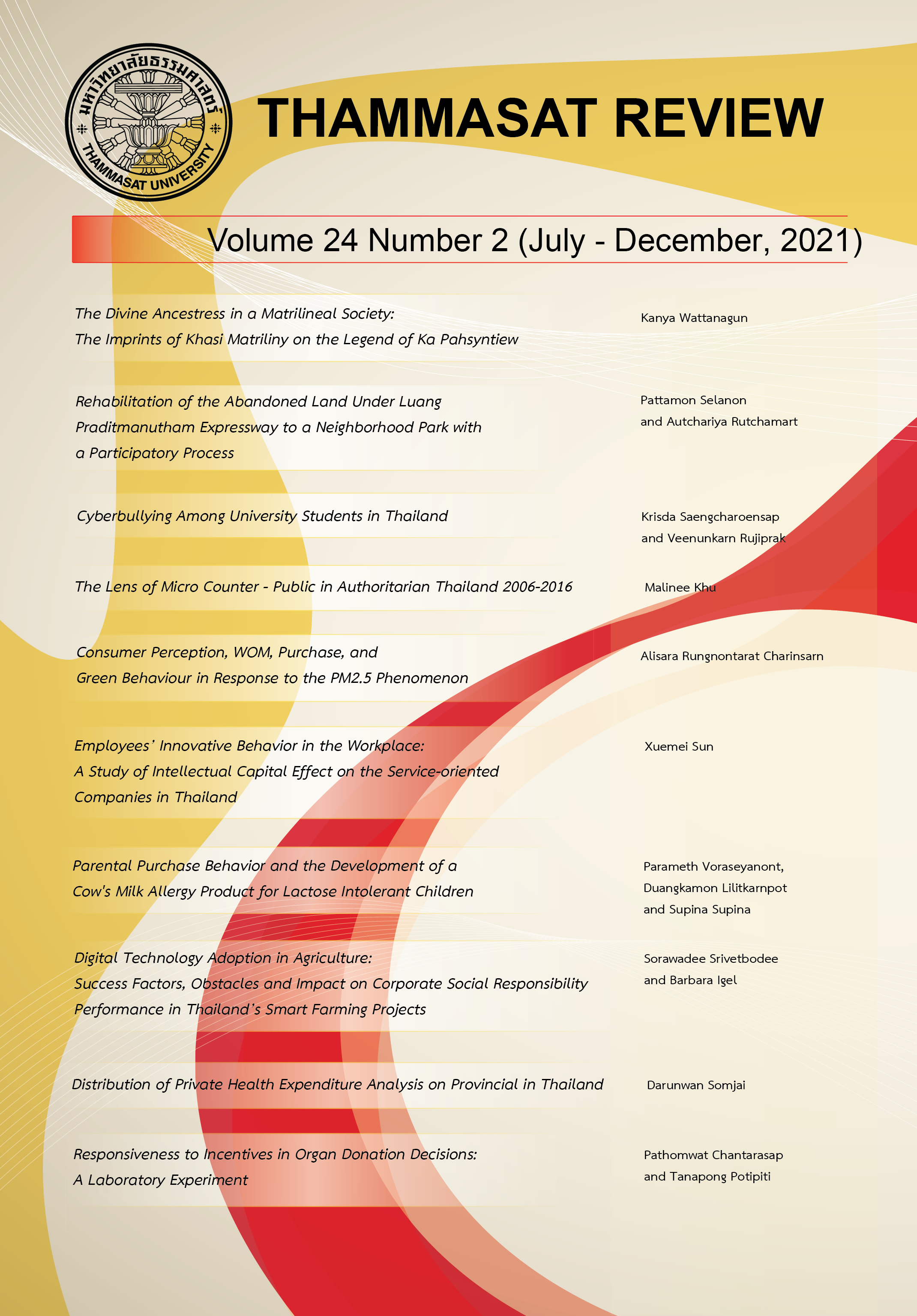Responsiveness to Incentives in Organ Donation Decisions: A Laboratory Experiment
Keywords:
Organ Allocation Rule, Organ Donation, Experimental EconomicsAbstract
In Thailand, the number of patients who are waiting for an organ transplant has been growing. This study investigates the optimal organ allocation rule considering the risk of organ compatibility between givers and receivers. We run the experiment focusing on three allocation rules: the first come first served, the rebate, and the priority rule. In the first come first served, the longest waiting subject obtains an organ. The rebate rule is that donors receive payment for donating and they are given a priority when they need an organ transplant in the priority rule. We find that the subjects have the strongest response to the priority rule and the compatibility factor played a crucial role when subjects decide to donate.
Downloads
Published
How to Cite
Issue
Section
License
The opinions and ideas expressed in all submissions published in Thammasat Review are solely that of the author(s) and do not necessarily reflect that of the editors or the editorial board.
The copyright of all articles including all written content and illustrations belong to Thammasat Review. Any individuals or organisation wishing to publish, reproduce and distribute a particular manuscript must seek permission from the journal first.








